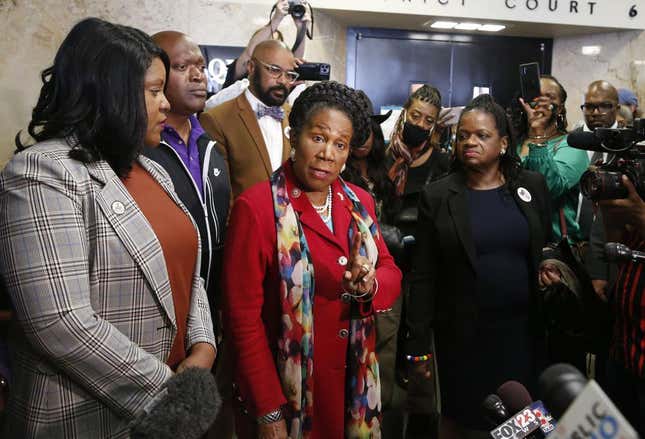
Tulsa County District Court Judge Caroline Wall ruled Monday that a lawsuit can proceed that seeks reparations for survivors and descendants of victims of the 1921 Tulsa Race Massacre. As the Associated Press reports, the Oklahoma judge ruled against a motion to dismiss the civil rights attorney Damario Solomon-Simmons’s lawsuit filed in 2020 under the state’s public nuisance law.
Solomon-Simmons said that a quick decision is critical for living survivors Lessie Benningfield Randle, 107, Viola Fletcher, 107, and Hugh Van Ellis, 101.
“We want them to see justice in their lifetime,” he said, choking back tears. “I’ve seen so many survivors die in my 20-plus years working on this issue. I just don’t want to see the last three die without justice. That’s why the time is of the essence.”
The lawsuit brought forth by Solomon-Simmons states that the actions of the white mob that killed hundreds of Black residents and destroyed what had been the nation’s most prosperous Black business district continue to affect the city today.
“In public nuisance cases, it is clear either criminal acts or destruction of personal property” constitute a nuisance, said Eric Miller, a Loyola Marymount University law professor working with the plaintiffs. Miller said that racial and economic disparities resulting from the massacre continue to this day.
The lawsuit seeks unspecified punitive damages and calls for the creation of a hospital in north Tulsa, in addition to mental health and education programs and a Tulsa Massacre Victims Compensation Fund.
Oklahoma previously sued Johnson and Johnson for its role in the opioid crisis under the state’s public nuisance law. A judge ordered the drugmaker to pay the state $465 million in damages. Still, it was overturned by the Oklahoma Supreme Court, stating the law didn’t apply because the company had no control of the drug after it was sold. Miller notes the ruling will not affect the reparations lawsuit.

